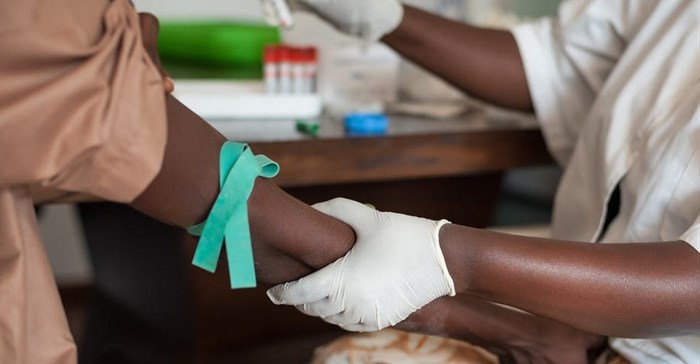All organisms are unique. Each having a set of genetic instructions for their build-up and maintenance. This set of genetic instructions is contained in genes that makeup a genome.

Personalised medicine aims to tailor treatment according to each person’s genetic makeup. Shutterstock
The World Health Organisation defines genomics as the study of genes and their complex interplay in influencing the growth and development of an organism. Through genomics, gene sequences can be manipulated to prevent – or manage – certain diseases and hence prolong life and improve public health.
More and more research is showing that a better understanding of the genomics of pathogens can play a crucial role in preventing and treating infectious diseases. Identifying genetic risk factors for diseases can ensure timely interventions. It can also help curtail the spread of emerging infections and drug resistance.
Because of this, genomic research has huge potential in helping African countries address public health issues. The problem is that Africa lags behind other regions. This is true in terms of research, resources as well as policy.
Burden of disease
Africa faces a heavy disease burden of both communicable and non-communicable diseases. In the last two decades, the continent has succeeded in decreasing some communicable diseases such as cholera and polio. But others such as malaria and HIV remain quite high.
This disease burden has been aggravated with the emergence of drug-resistant strains.
In addition, non-communicable diseases such as cardiovascular diseases, cancer, diabetes and chronic respiratory diseases are also on the rise. The number of deaths from these is projected to increase over the next decade.
This high disease burden can be significantly reduced. But it needs a proactive approach. This should include a combination of public health strategies as well as the use of genomics to help identify genetic risk factors.
Why genomics matters
Some examples of how genomic research has been used to address public health issues include:
- The identification of a new antimalarial drug;
- The development of new vaccines; and
- In the investigation of causes of infectious disease outbreaks, including the Ebola virus
Genomic analysis has also provided important prognostic indicators for breast cancer patients. This has helped identify the drugs that individuals could best respond to. It opened the door to the new era of personalised medicine that aims to tailor therapy according to each person’s genetic makeup.
A good example was the use of genome sequencing that pointed to a new treatment regimen for Nicholas Volker who had a gastrointestinal disorder that was cured with a bone marrow transplant.
To date, the US Food and Drug Administration has approved 45 human genetic tests, and more than 100 nucleic acid-based tests for microbial pathogens. Most of this research is being carried out in the developed world.
But scientists in Africa have also been attempting large-scale genome research studies focused on specific diseases. For example, the international HapMap project and other previous studies have shown that people who live on the continent have the greatest genetic variation. Therefore understanding the genetic basis of both communicable and non-communicable diseases may provide useful insights into devising effective strategies to combat diseases that have had a large impact on the continent.
Challenges
Africa still lags behind the rest of the world in the field of genomic research. This is largely attributed to the following challenges:
- The cost of research remains prohibitive for African research centres. This is mainly due to lack of enough government funding and support;
- There’s a shortage of African scientists with genomic research and computational expertise who can translate genomic information into clinical medicine;
- A lack of biomedical research infrastructure to undertake genomic research;
- Lack of collaborative research among African scientists;
- A climate of fear about the potential for misuse and misinterpretation of genomic information among the public and health professionals in Africa;
- Poor engagement with national and regional agencies in the uptake of genomic research as novel methodologies to help tackle health problems; and
- No proper policies and clear guidelines to inform medical and public health professionals about the level of confidence and use of genomic information.
What to do
African Union member states have set a target of 1% of GDP to be invested on research and development. But most member states don’t meet this target. Only South Africa, Kenya and Senegal are close – at around 0.8%.
It’s crucial that genomic research is given higher priority on the continent. The research should be supported by establishing the infrastructure for genomic studies, capacity building and improving collaborations with credible international partners.
African genomic scientists should also build networks and collaborations that enable the exchange of new ideas and the transfer of knowledge. This could indirectly influence policy makers to support investments in genomic research.
There are programmes that are supporting initiatives like this. These include the Alliance for Accelerating Excellence in Africa, created by the African Academy of Sciences and the Human Heredity and Health in Africa. These programmes support studies led by African scientists by providing research funds that foster genomics research, capacity building, as well as specific scientific goals.
But there’s scope for considerable expansion.
Overall, policymakers need to be involved from the beginning in all discussions and debates involving genomics research. They should be engaging with communities, academics and public health professionals to help develop research questions. They should also be involved in preparing to set up legal regulatory frameworks. This would go a long way towards ensuring the translation of genomic research findings into public health benefits.
This article is republished from The Conversation under a Creative Commons license. Read the original article.


























